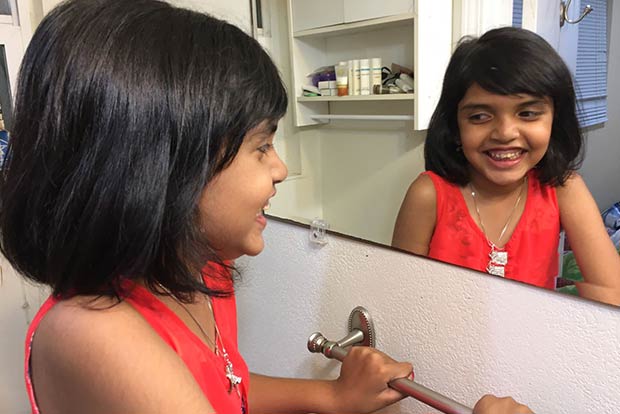Begin typing your search...
Science of Parenting: Forming an image of the child
Apoorva hears her children, Raghav aged seven and Ram aged five, fighting. As Apoorva rushes out to settle the dispute, she has many thoughts, ‘Both of them always fight. Raghav is such a bully, I hope he does not hurt Ram. Why are both of them so naughty?’

Chennai
These thoughts are coming from Apoorva’s belief system. She believes that Raghav being older must be gentle and take care of his younger brother.
Apoorva’s beliefs about Ram are that he is younger and weaker and gets bullied easily. She worries that if he does not learn to stand up for himself now, it might be difficult to do so as an adult.
Our thoughts, beliefs and everyday experiences lead us to form an image of our child. We begin to put these labels on them from an early age — aggressor, victim, strong, weak, shy, dreamer, stubborn, moody, not friendly, slow, bully, selfish etc. This often happens when we have a child who challenges us a lot and we get stuck in battles with the child.
In most situations, we react to the child and make decisions based on a label we have created for the child, often a negative one. For example, if Apoorva hears a complaint that her son was involved in a fight, she would automatically assume that Raghav was at fault as he was a ‘bully’. She would not be open to hear about the fight, or trust her son.
Children form their self-image based on interactions with the all-important adults in their life — their parents. When we name call or label a child, the label is projected onto the child, causing the child to form and live up to a negative self-image of themselves. If the child keeps hearing how dumb he is, then he will not try to study hard. Instead, he will accept he is not capable of scoring good marks. If a child is constantly told he is lazy, he starts believing that if my parents are saying I am lazy, I must be! Moreover, labels could be hurtful and make children feel resentful.
Of course, we all form perceptions based on our experiences and act accordingly. It is normal to make judgements but we could put in thought into our actions. In many instances we end up judging and labelling our child but we need to question if that label is really going to help her.
Children are changing and growing every day. Can we wake up each morning and look at our child with fresh eyes? Just because our child was mean yesterday we cannot conclude he is a mean person. Maybe something has upset the child causing him to behave inappropriately.
It is helpful to create an image of what we believe the child is capable of becoming. Can we encourage him to be gentle and kind, believing that a stubborn child can also be adjusting? That a lazy child can also show initiative. That a careless child can also be responsible.
Another thing we can do is see the positive side of every negative trait. A child who is strong willed will have a mind of her own.
When we parents label our children and get stuck to our negative perceptions of them, we find ourselves resorting to nagging and lecturing in the pursuit of disciplining our child. This makes the child indifferent to the parent’s guidance. Instead, we could trust our children and be approachable to them. This will strengthen our connection with them.
Seeing with fresh eyes and abstaining from labelling helps not only with our children, but in all our relationships.
—The writer is a certified parent educator with Parenting Matters, an organisation which empowers parents to build deeper connection in families. To know more visit our website parentingmattersindia@gmail.com
Visit news.dtnext.in to explore our interactive epaper!
Download the DT Next app for more exciting features!
Click here for iOS
Click here for Android
Next Story



